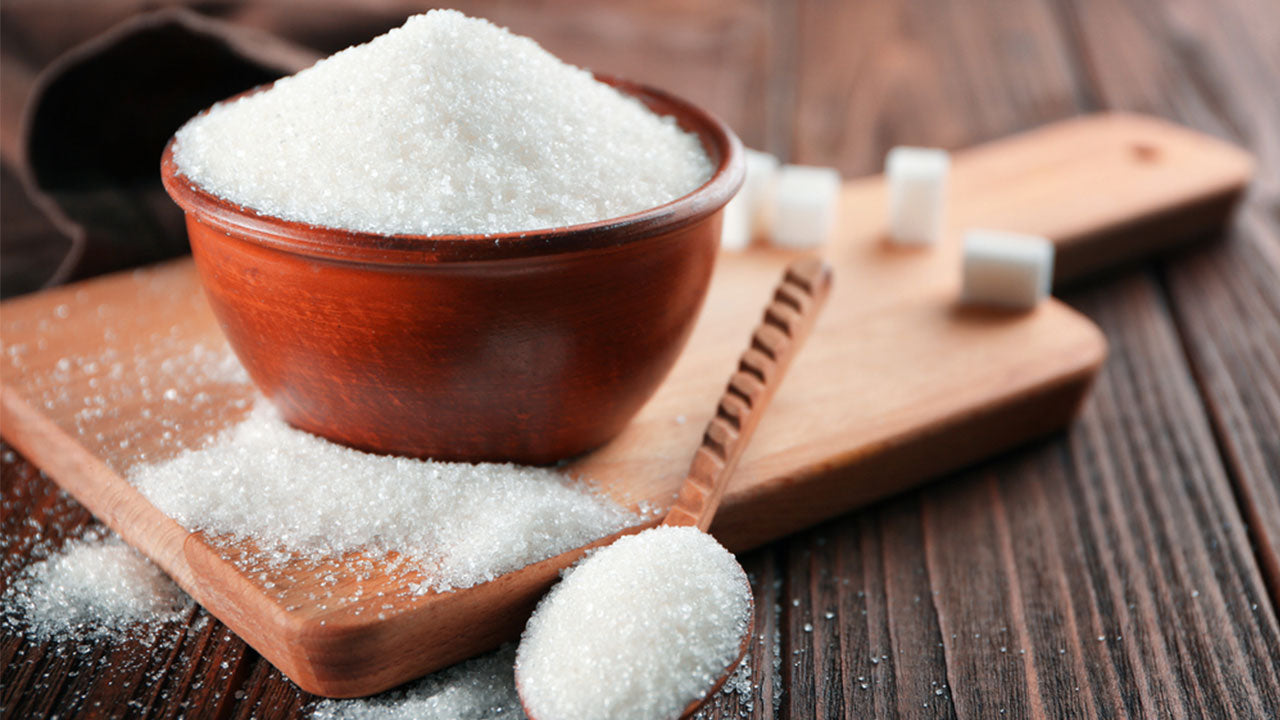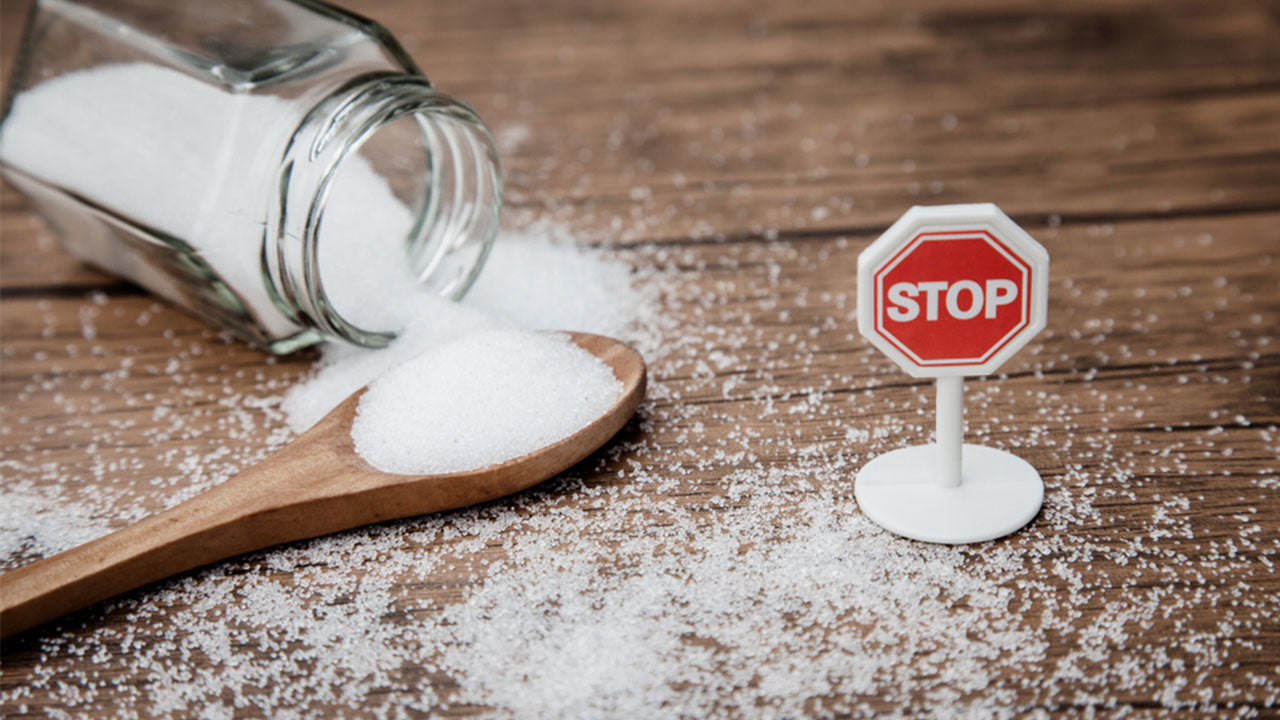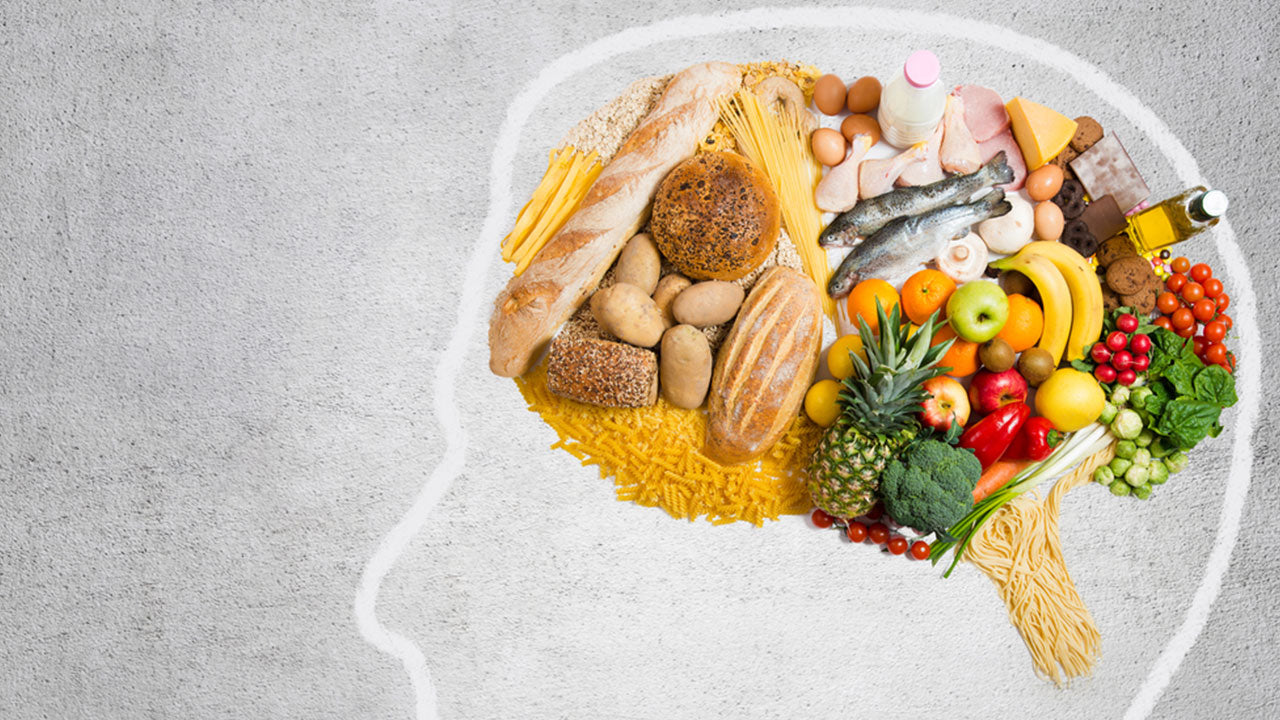Your Brain on Sugar: How Sugar Affects the Brain and How to Kick the Addiction
 By: by Amino Science
By: by Amino Science

The U.S. Department of Agriculture has reported that the average American ingests approximately 47 pounds of cane sugar and 35 pounds of high-fructose corn syrup annually, or more than 20 teaspoons of sugar per day. In addition to being apparent in cake, cookies, and other sweet foods, it hides in many processed foods, such as tomato sauce, milk, and energy drinks. High-fructose corn syrup, an inexpensive liquid sweetener, is used in soft drinks, condiments, applesauce, and baby food.
While sugar is necessary for brain function, it can have harmful effects when overeaten. Some researchers call sugar craving an addiction, while other scientists have determined that sugar can affect far more than the waistline. Here’s science’s take on how sugar affects the brain.
How Sugar Affects the Brain
One form of sugar—glucose—fuels every cell in the human body as its primary energy source. The brain utilizes about half the sugar energy in the body. Glucose levels determine the efficiency of brain functions such as thinking, memory, and learning. According to Harvard researcher Vera Novak, MD, PhD, “The brain is dependent on sugar as its main fuel. It cannot be without it.”
While the brain requires glucose, too much of this sugar can be detrimental and lead to serious negative effects. Excess sugar consumption can cause cells to age prematurely and people to suffer from memory and cognitive function problems. Sugar’s negative impact on the brain is especially problematic in diabetes, according to Novak. High blood glucose levels can cause connectivity problems between different regions of the brain, brain shrinkage, and restricted blood flow, which can lead to functional decline.
The effects of too much sugar can also involve depression. A University College London study showed that in middle-aged participants, a dietary pattern of sugar-laden processed food is a risk factor for depression 5 years later.
Sugar Addiction
Scientists know that drugs can be addictive. Now they think that may be true of foods. Researchers at the National Center for Biotechnology Information have come up with “evidence for sugar addiction” by analyzing bingeing, withdrawal, craving, and cross-sensitization and their relationship to neurochemical changes in the brain—such as changes in dopamine and opioid receptor binding, enkephalin mRNA expression and dopamine and acetylcholine release in the nucleus accumbens—that also occur with addictive drugs.
The researchers believe that some people develop “an unhealthy dependence on palatable food that interferes with well-being.” Their evidence from animal studies suggests that sporadic access to sugar can trigger behavioral and neurochemical changes that look like the effects of substance abuse. They conclude that sugar is addictive.
Your Brain on Sugar
A recent British study at the University of Waterloo has linked diabetes with the pathology of Alzheimer’s disease (AD). They defined “an early glycation profile of human brain,” identified “early glycation and oxidation of macrophage migration inhibitory factor (MIF) in AD brain,” and determined that “glucose modified and oxidized MIF could be a molecular link between hyperglycemia and the dysregulation of the innate immune system in AD.” In other words, the inability of the body to process sugar (a characteristic of diabetes) leads to the progressive degeneration of neurons that cause severe cognitive decline. The study provided a molecular link between the two diseases using fluorescent phenylboronate gel electrophoresis.
The researchers pointed out critical differences in the glycation and migration profile of MIF between AD brain samples and controls. These differences seem to involve early carbohydrate modifications. MIF, which modulates insulin secretion, affects glucose homeostasis, and factors in diabetes could have “implications for the innate immune response to any nascent pathological AD lesions.”
According to Dr. Omar Kassaar, one of the researchers, “Excess sugar is well known to be bad for us when it comes to diabetes and obesity, but this potential link with Alzheimer’s disease is yet another reason that we should be controlling our sugar intake in our diets.” Another researcher, Dr. Tara Spires-Jones, added that the study “does not suggest that sugar directly causes Alzheimer’s… a better understanding of this type of risk will help scientists develop strategies to prevent or treat Alzheimer’s disease in the future.”
A UCLA animal study published in the Journal of Physiology in 2012 confirmed an association between sugar and brain health. It demonstrated that a diet consistently heavy in fructose decelerates the brain and disrupts memory and learning, and that omega-3 fatty acids can help mitigate this effect.
According to Fernando Gomez-Pinilla, professor of neurosurgery at the David Geffen School of Medicine at UCLA, a member of UCLA’s Brain Research Institute and Brain Injury Research Center and a professor of integrative biology and physiology in the UCLA College of Letters and Science, “Our findings illustrate that what you eat affects how you think. Eating a high-fructose diet over the long term alters your brain’s ability to learn and remember information. But adding omega-3 fatty acids to your meals can help minimize the damage. We’re less concerned about naturally occurring fructose in fruits, which also contain important antioxidants. We’re more concerned about the fructose in high-fructose corn syrup, which is added to manufactured food products as a sweetener and preservative.”
Researchers fed two groups of rats a fructose solution for 6 weeks. The experimental group was also given omega-3 fatty acids to protect the synapses from damage. Synapses are the circuitry between brain cells that facilitate learning and memory. Before being put on the experimental diet, the rats trained on a maze 2 times a day for 5 days. Researchers tested how well the rats recalled the route and escaped the maze after 6 weeks on the diet.
According to Gomez-Pinilla, “The second group of rats navigated the maze much faster than the rats that did not receive omega-3 fatty acids. The DHA-deprived animals were slower, and their brains showed a decline in synaptic activity. Their brain cells had trouble signaling each other, disrupting the rats’ ability to think clearly and recall the route they’d learned 6 weeks earlier. The rats that didn’t receive the omega-3s also exhibited symptoms of insulin resistance. Insulin is a hormone secreted by the pancreas that regulates blood sugar and synaptic transmission in the brain. When researchers examine the rats’ brains they discovered that insulin was not able to as effectively impact brain cells. Because insulin can penetrate the blood–brain barrier, the hormone may signal neurons to trigger reactions that disrupt learning and cause memory loss.”

Sugar and Memory
Researchers at the Mayo Clinic also believe that diabetes and Alzheimer’s disease are connected. Many people with diabetes have brain changes that are hallmarks of both Alzheimer’s disease and vascular dementia. Each condition may exacerbate the harm caused by the other. The connection may happen because of the complex ways that type 2 diabetes affects the ability of the brain and other body tissues to use sugar (glucose) and respond to insulin.
Mayo Clinic researchers suggest that diabetes might add to the risk of developing mild cognitive impairment, a condition that entails more cognitive and memory problems than are typically a factor of normal aging. Such mild cognitive impairment could be the prologue to Alzheimer’s disease and other forms of dementia.
Another study on the effects of too much sugar established a connection between a diet high in fructose and the risk of developing Alzheimer’s disease through the same pathway that causes type 2 diabetes. Some experts have said that Alzheimer’s and other brain disorders can be attributed to the constant burning of glucose for fuel by the human brain.
Sugar and Mental Health
The Whitehall II study investigated associations between sweet food/beverage intake and common mental disorders and depression, and examined the role of reverse causation (influence of mood on intake) as a possible explanation for the associations. In other words, the researchers were examining the influence of sugar on mood and the influence of mood on sugar consumption.
The study offered evidence that excessive sugar consumption increases the chance of incident mood disorders in men and limited evidence about recurrent mood disorders in both sexes. With a high prevalence of mood disorders, and sugar intake commonly 2 to 3 times the level recommended, the study suggested that promoting the reduction of sugar intake could lead to possible prevention of depression.
Does the Brain Need Sugar?
Sugar provides a way to cope with stress, according to research by Melanie Greenberg Ph.D. She explained that neuroscientists have demonstrated that sugar causes dopamine release in a primary component of the brain's reward system called the nucleus accumbens, a brain region associated with motivation, novelty, and reward, as well as one that responds to cocaine and heroin. Sugar can change dopamine receptors, making them crave more of a substance to produce an effect. People can depend on sugar for pleasure and reward.
Consuming sugar can cause the release of endogenous opioids in the brain in the same way as taking drugs. Addiction to one substance may cause people to become dependent on other addictive substances that use similar brain chemistry. Eating too much sugar can trigger cravings, withdrawal, tolerance, and preoccupation with finding a sugary food or beverage, Greenberg said.
Breaking the Sugar Addiction
It's time to give up that high-sugar diet. Consuming sugar in moderation by minimizing processed foods containing fructose and added sugar, as well as refined carbohydrates in foods such as cereals and waffles is a good start. Eat healthy fats, such as omega-3, saturated, and monounsaturated fats, as well as fermented foods. Drink an essential amino acid drink (it comes in all sorts of flavors) instead of soda.
Writing in Psychology Today Susan Biali M.D. provided a list of ways in which to break a sugar addiction:
- Find rewards that really work.
- Don’t switch in one addictive behavior for another.
- If you want a sweet treat, go for something low glycemic and healthy that won’t trigger you.
- Be aware of the “just one drink” phenomenon.
- Don’t have it in the house.
She concluded, “Don’t estimate the power of sugar. Seriously.” We’ll take her word for it.

Up to 25% off Amino
Shop NowTAGS: food
Join the Community
Comments (0)
Most Craveable Recipes




 833-264-6620
833-264-6620



















